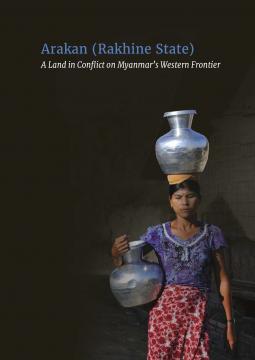Arakan (Rakhine State): A Land in Conflict on Myanmar’s Western Frontier
18 December 2019


Rakhine State, historically known as Arakan, represents the post-colonial failures of Myanmar in microcosm: ethnic conflict, political impasse, militarisation, economic neglect and the marginalisation of local peoples. During the past decade, many of these challenges have gathered a new intensity, accentuating a Buddhist-Muslim divide and resulting in one of the greatest refugee crises in the modern world. A land of undoubted human and natural resource potential, Rakhine State has become one of the poorest territories in the country today.
The current crisis is often characterised as a “Buddhist Rakhine” versus “Muslim Rohingya” struggle for political rights and ethnic identity. But the challenges of achieving democracy, equality and the right of self-determination have always been more complex and nuanced than this. Arakan’s vibrant history reflects its frontline position on a cultural and geo-political crossroads in Asia.
Note: The original version of this report (PDF) has been replaced by an updated version for hard copy publication, which was uploaded on 27 January 2020.
၎
င
၎
၎
Announcements
21 May 2025
Open letter: Malaysia must lead ASEAN with principle, not hypocrisy, to address the Myanmar crisis

Progressive Voice is a participatory rights-based policy research and advocacy organization rooted in civil society, that maintains strong networks and relationships with grassroots organizations and community-based organizations throughout Myanmar. It acts as a bridge to the international community and international policymakers by amplifying voices from the ground, and advocating for a rights-based policy narrative.